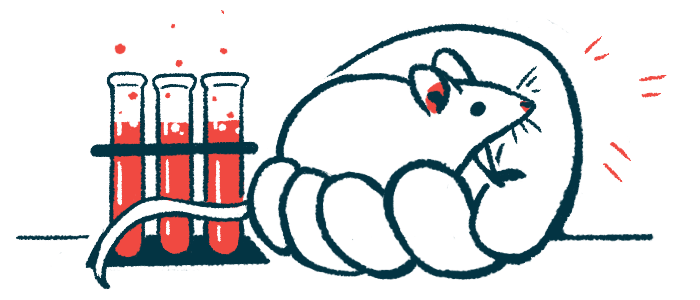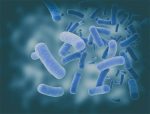‘Sleep Hormone’ Melatonin Shows Promise in Sjögren’s Mouse Model
Written by |

The activity of certain “clock genes” — those involved in the body’s internal clock, or circadian rhythm — is significantly dysregulated in the salivary glands of people with primary Sjögren’s syndrome (pSS) and a disease mouse model, a study shows.
Treatment with melatonin, a hormone that regulates the circadian rhythm and sleep in humans, was found to significantly reduce pro-inflammatory immune responses and improve salivary gland function in the mouse model.
These benefits were accompanied by a general restoration of the clock genes’ activity and daily oscillations, supporting a potential link between circadian rhythm abnormalities and pSS — and highlighting melatonin as a potential therapy for this patient population.
“Our study suggested that … melatonin might be a potential candidate for prevention and treatment of pSS,” the researchers wrote.
The study, titled “Melatonin alleviates the immune response and improves salivary gland function in primary Sjögren’s syndrome” and conducted by a team of researchers in China, was published in the journal Biochemical Pharmacology.
Sjögren’s syndrome is an autoimmune disease characterized by abnormal immune attacks against the body’s secretory glands — mainly tear and salivary glands. It lowers tear and saliva production, leading to dry eyes and mouth, also known as sicca symptoms.
Increasing evidence suggests that problems in the circadian clock contribute to the onset and progression of autoimmune diseases. Whether this is true in Sjögren’s remains largely unclear, however.
The circadian rhythm “orchestrates the daily rhythms of many physiological, behavioural and molecular processes,” including the production of immune cells and molecules, the researchers wrote.
Melatonin, commonly known as the “sleep hormone,” is mainly produced by the small pea-shaped pineal gland in the brain. Besides regulating sleep-wake cycles, it “plays an important role in the maintenance of the circadian rhythm and immunomodulation.”
Moreover, treatment with melatonin has shown promise in some autoimmune diseases, while being safe and well-tolerated, with nearly no side effects — features needed in the Sjögren’s therapeutic field, according to the scientists.
Current Sjögren’s first-line therapies usually involve immunosuppressive medications, but these “inevitably induce a series of side effects” that can be severe, they noted.
“It is imperative to identify a new, safe and effective treatment to [successfully] administrate pSS patients,” the team wrote.
Their study now evaluated whether the activity of circadian clock genes in salivary glands was dysregulated in pSS patients and mouse models. The team also examined the therapeutic potential of melatonin in these mice.
A total of 10 women were recruited for the study. Seven had pSS but had received no prior treatment for the disease. The other three were healthy women who served as controls. The patients’ median age was 48.7 years (range, 39–58 years), and the control group had a median age of 45.3 years (range, 37–53 years). Samples were collected between 9 and 10 a.m.
Results showed the activity of clock genes with anti-inflammatory effects — specifically, BMAL1, CRY1, and CRY2 — were significantly reduced in the salivary glands of pSS patients and mice with pSS-like disease relative to their healthy counterparts.
In turn, pSS was associated with significantly higher activity of genes known to increase inflammation: CLOCK, PER1, PER2, and ROR-alpha.
In addition, differences in 24-hour-oscillations were noted for several of these clock genes, particularly CRY2 and ROR-alpha, which showed inversed diurnal patterns between the pSS mouse model and healthy mice.
These data supported a potential link between circadian clock dysregulation and pSS.
The team then assessed the effects of a four-week daily treatment with melatonin in mice with pSS-like disease.
Melatonin treatment nearly restored clock genes’ activity and daily oscillations in the salivary glands, while significantly improving gland function and reducing immune cell infiltration.
This was accompanied by a significant drop in the levels of pro-inflammatory immune cells and molecules, and an increase in those with anti-inflammatory effects. Also, melatonin treatment significantly lowered the levels of abnormal antibodies associated with Sjögren’s, closely approaching those seen in healthy mice.
These findings highlight the circadian clock’s role in pSS and point to melatonin as a “potential approach for pSS prevention and treatment,” the researchers wrote.
Notably, since inflammatory molecules can also disrupt clock genes’ activity and oscillations, the observed abnormalities “might not only be the cause but also be the consequence of pSS,” the team added.
Researchers noted that further research is needed to clarify “the specific contributions of these clock genes or melatonin-related receptors involved in the effects of melatonin on pSS,” as well as future, appropriately-designed studies to assess melatonin’s efficacy in people with pSS.






